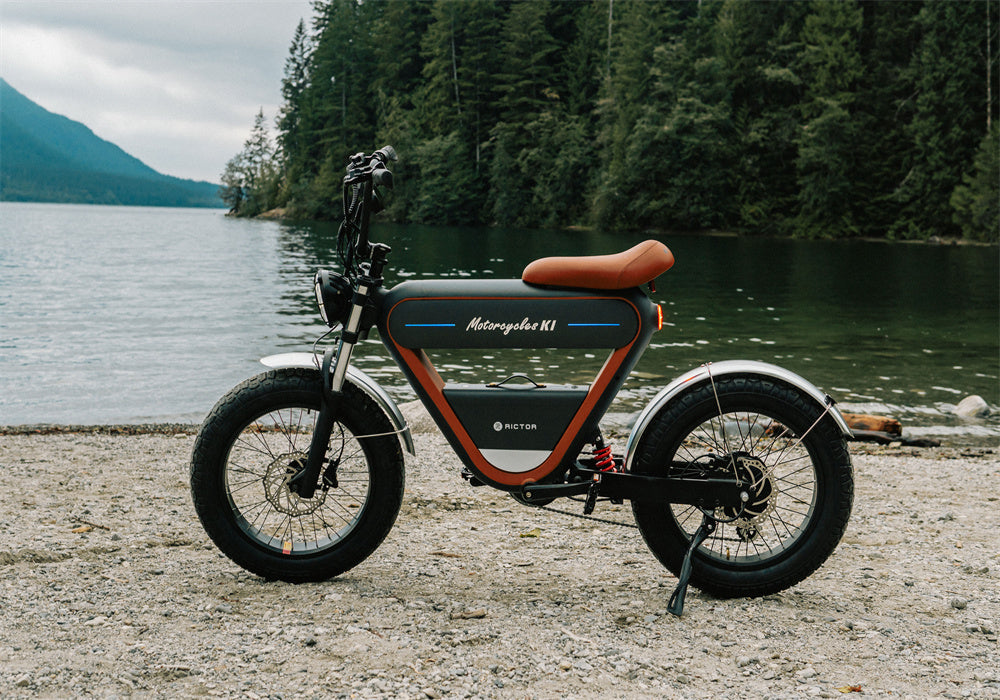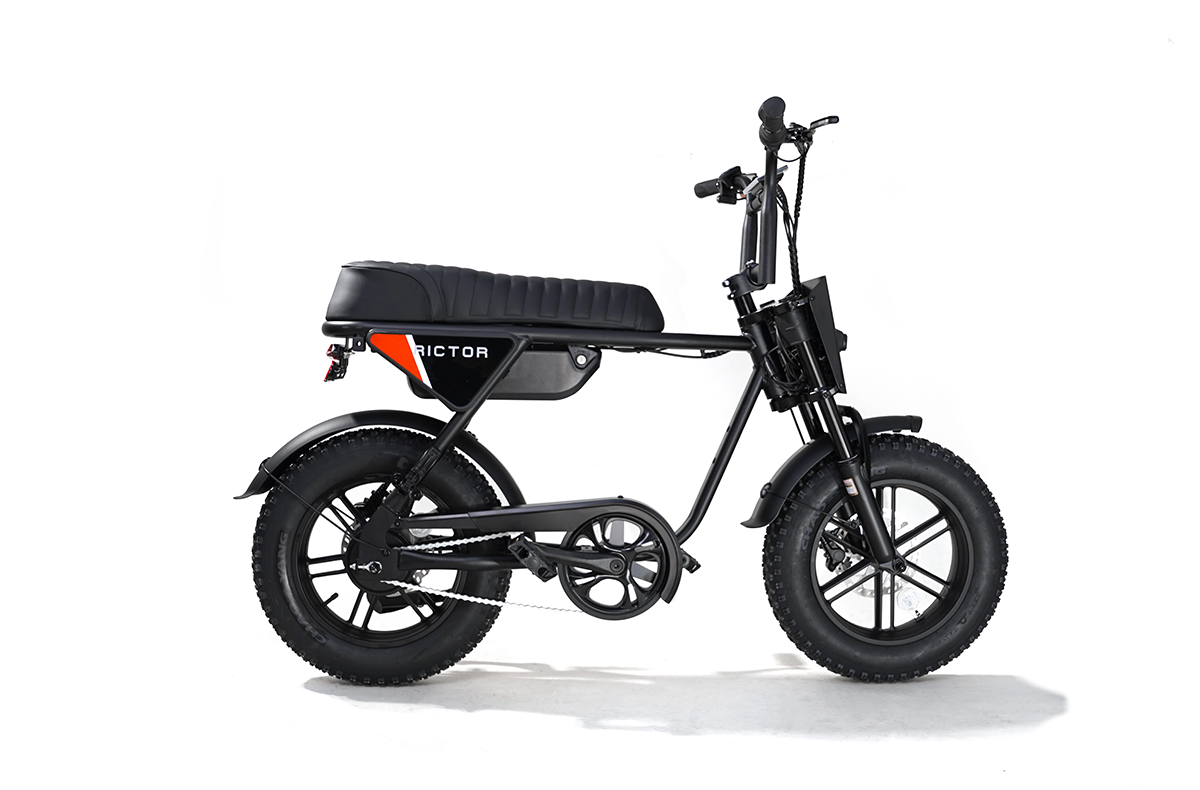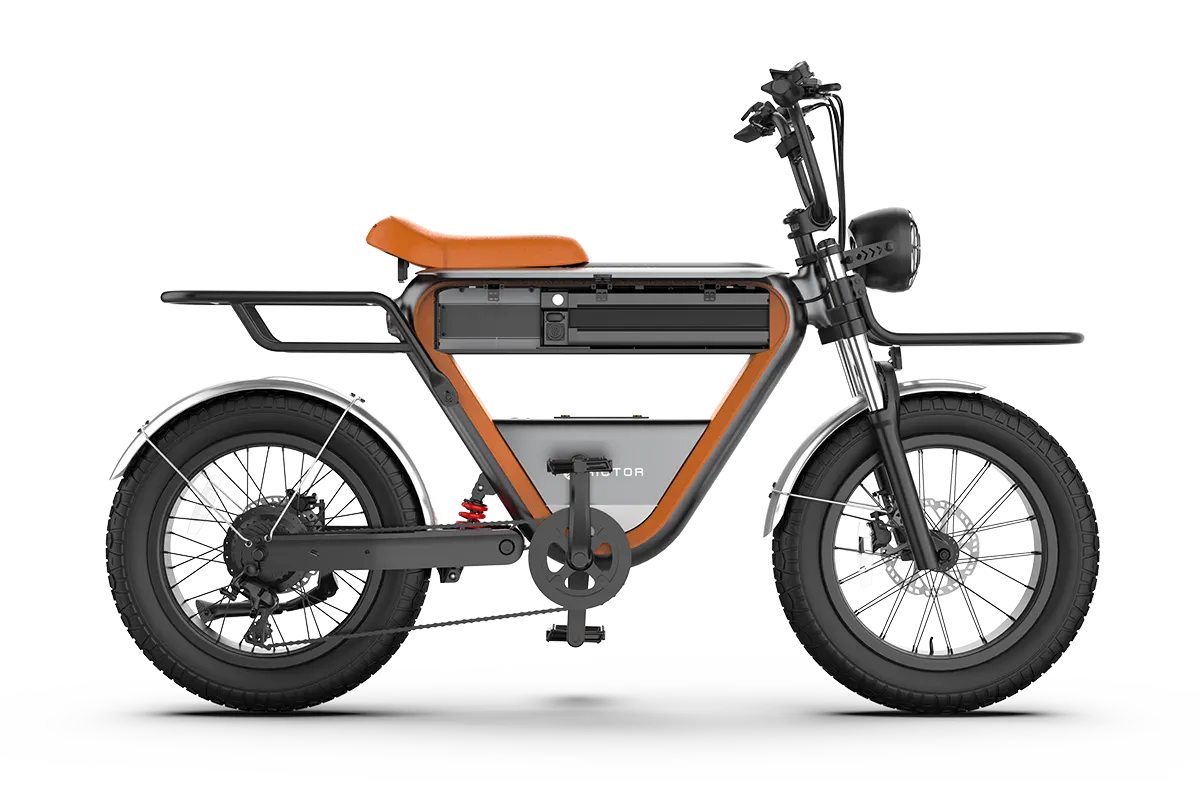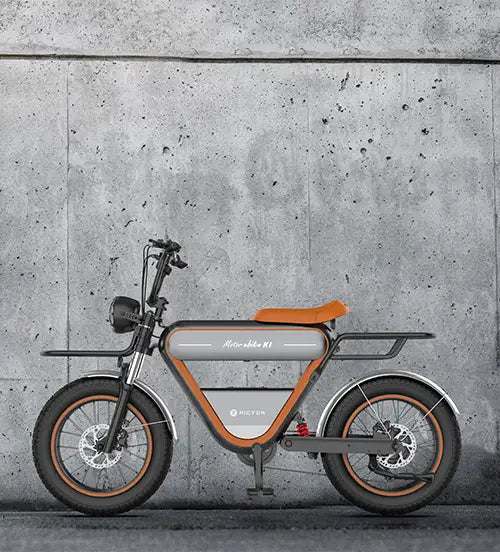
EBike Noise: Identifying Sources and Solution
Unwanted noise is a common problem for many e-bike riders and can make your ride less enjoyable. Whether it’s clicking, grinding, or rattling, these sounds often point to specific issues that can usually be fixed. In this guide, we’ll cover the most common sources of e-bike noise and how to troubleshoot them for a smoother, quieter ride.
Motor Noise: Understanding the Heart of Your EBike
The electric motor is the defining component of any ebike, and it can also be a primary source of noise. Different types of motor noise may indicate various conditions:
Normal Motor Operation Sound
Most ebike motors produce a low humming or whirring sound during normal operation. This is typically:
A consistent, moderatepitched sound that increases with speed
Most noticeable during acceleration or when climbing hills
Generally smooth and even in tone
Problematic Motor Noises
When your ebike motor produces concerning sounds, it might indicate:
Highpitched whining: Often suggests bearing issues or inadequate lubrication
Grinding or scraping: May indicate internal component damage or misalignment
Clicking or irregular sounds: Could point to loose motor mounts or damaged magnets
Excessive vibration with noise: Potentially signals an unbalanced rotor or worn components
Common Causes of Abnormal Motor Noise
Worn bearings requiring replacement
Loose motor mounting hardware
Damaged internal components
Controller issues affecting power delivery
Improper gear engagement in middrive systems
Noises from Loose Bicycle Components
Ebikes contain numerous parts that can work loose over time due to vibration and regular use. These loose components often create distinctive noises:
Frame and Attachment Points
Loose rack mounts or fender attachments creating rattling sounds
Frame junction points developing creaks, especially in folding ebikes
Battery mount looseness causing movement and noise during rides
Handlebar and stem connections that produce creaking under pressure
Wheel and Suspension Components
Spoke tension issues creating pinging or clicking sounds
Loose hub components producing clunking during acceleration
Suspension elements (if present) making squeaking or knocking noises
Quickrelease mechanisms or thruaxles that have become partially loose
Drivetrain Component Connections
Pedal connections to cranks developing creaks
Bottom bracket looseness creating rhythmic clicking
Chainring bolts that have worked loose causing unstable chainring movement
Derailleur hanger alignment issues leading to irregular noises
Chain and Drivetrain Noise
The drivetrain of an ebike experiences more stress than a conventional bicycle due to the added motor power, making it particularly susceptible to noise issues:
ChainRelated Noises
Dry chain creating a consistent scratching sound
Misaligned derailleur causing clicking during pedaling
Chain rubbing against components producing continuous friction sounds
Chain slap against chainstay creating intermittent slapping noise
Worn chainrings or cassette causing skipping under power
Gear System Noises
Improperly adjusted limit screws causing chain rub on extremes of cassette
Indexed shifting out of adjustment leading to gear hunting
Worn pulley wheels in the rear derailleur creating additional friction noise
Inadequate cable tension producing hesitation and noise during shifts
Pedal Assist System Interaction
Torque sensor calibration issues creating uneven power delivery and chain stress
Cadence sensor problems causing abrupt power application and chain noise
Controller timing problems affecting smooth power transition
How to Eliminate EBike Noise
Addressing ebike noise requires systematic troubleshooting and regular maintenance:
Professional Solutions
Annual professional servicing: Have your ebike checked by a certified ebike technician
Motor inspection: Specialized equipment can diagnose internal motor issues
Component replacement: Some noises can only be eliminated by replacing worn parts
Electronic diagnostics: Professional evaluation of the controller and electrical systems
DIY Maintenance Practices
Regular cleaning and lubrication:
Clean your chain and drivetrain components regularly
Apply appropriate lubricant to the chain based on riding conditions
Use silicone spray for suspension components and pivot points
SEE ALSO Do E-Bikes Need Different Chain Lube?
Systematic tightening routine
Check all bolts and fasteners monthly with appropriate torque specifications
Pay special attention to motor mounts, rack attachments, and stem connections
Secure quickrelease mechanisms and thruaxles properly
Drivetrain adjustment
Learn basic derailleur adjustment techniques
Check chain wear regularly using a chain wear indicator
Ensure proper chainline alignment
Noise Prevention Strategies
Install frame protection to prevent chain slap
Use rubber or silicone dampeners on racks and accessories
Apply threadlocking compound to crucial bolts
Upgrade to higher quality components in highstress areas
Keep firmware updated for optimal motor performance
Conclusion
Noise issues on ebikes are often early indicators of maintenance needs or developing problems. By understanding the different types of noises—whether from the motor, loose components, or the drivetrain—riders can address issues before they become serious. Regular maintenance, proper lubrication, and attention to component security can significantly reduce unwanted sounds and enhance the riding experience.
FAQs
What are the most common areas on an e-bike that produce unwanted noise?
Common noise sources include the electric motor (e.g., worn bearings, loose mounts), various loose bicycle components (like racks, fenders, handlebars, or battery mounts), and the drivetrain system (such as a dry or misaligned chain, worn gears, or loose pedal connections).
Are there specific e-bike noises that indicate a serious problem needing urgent attention?
Yes, high-pitched whining, grinding, or scraping sounds from the motor often suggest serious internal issues like bearing failure or component damage. Significant clicking, irregular motor sounds, or excessive vibration combined with noise also warrant prompt inspection.
What are some basic DIY steps I can take to troubleshoot and reduce e-bike noise before seeing a professional?
You can regularly clean and lubricate your chain and drivetrain, systematically check and tighten all bolts and fasteners (paying attention to motor mounts, racks, and stem), and learn basic derailleur adjustments for smoother shifting. Ensuring proper spoke tension can also eliminate some sounds.





